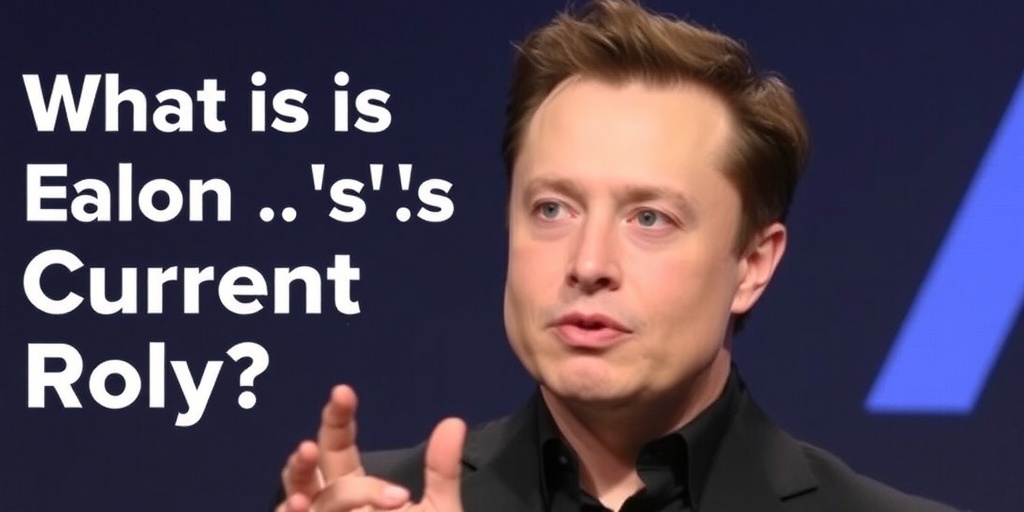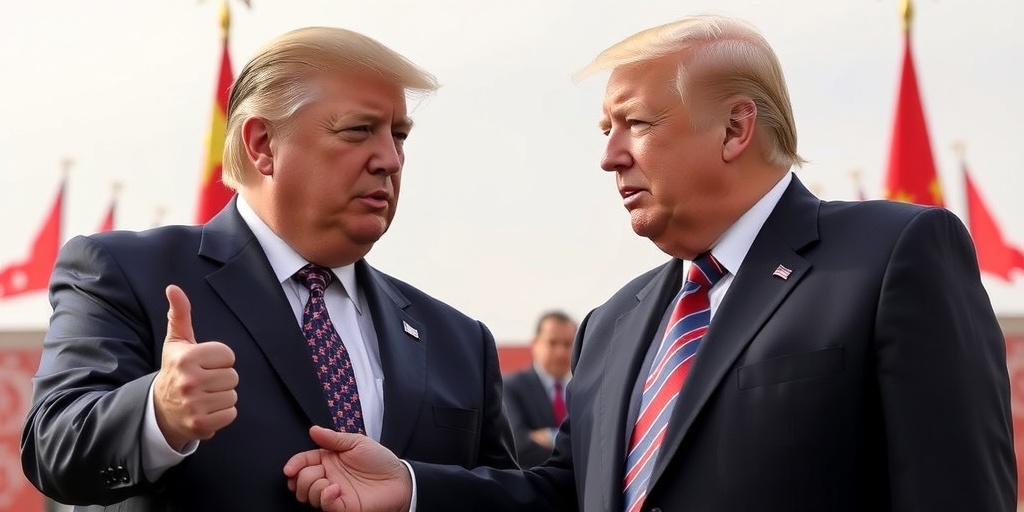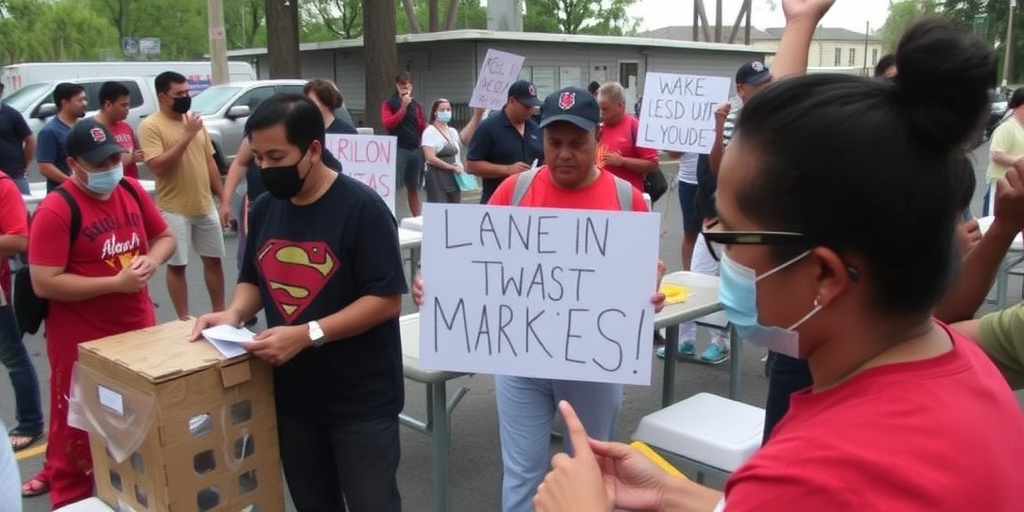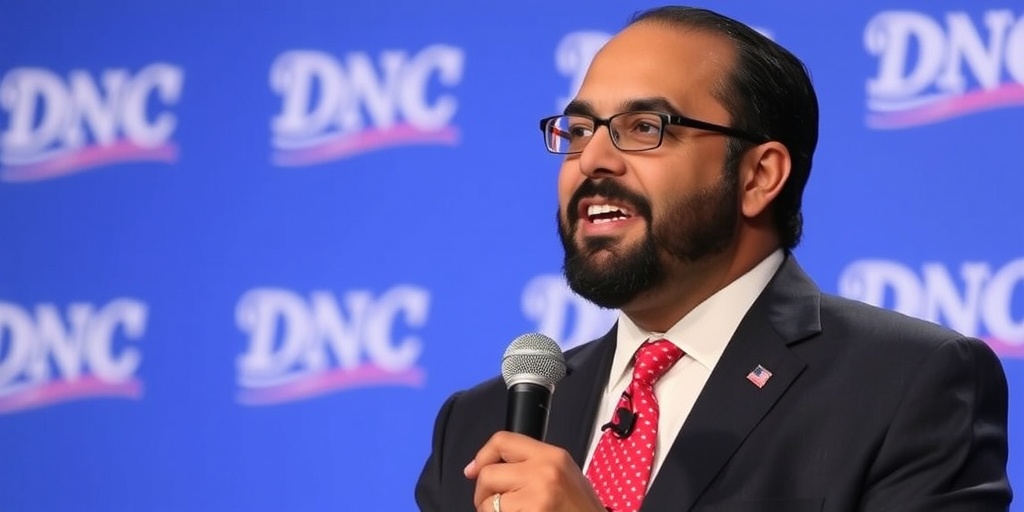Now Reading: Whitmer Cautions Tariff Threats to Michigan’s Auto Industry
-
01
Whitmer Cautions Tariff Threats to Michigan’s Auto Industry
Whitmer Cautions Tariff Threats to Michigan’s Auto Industry
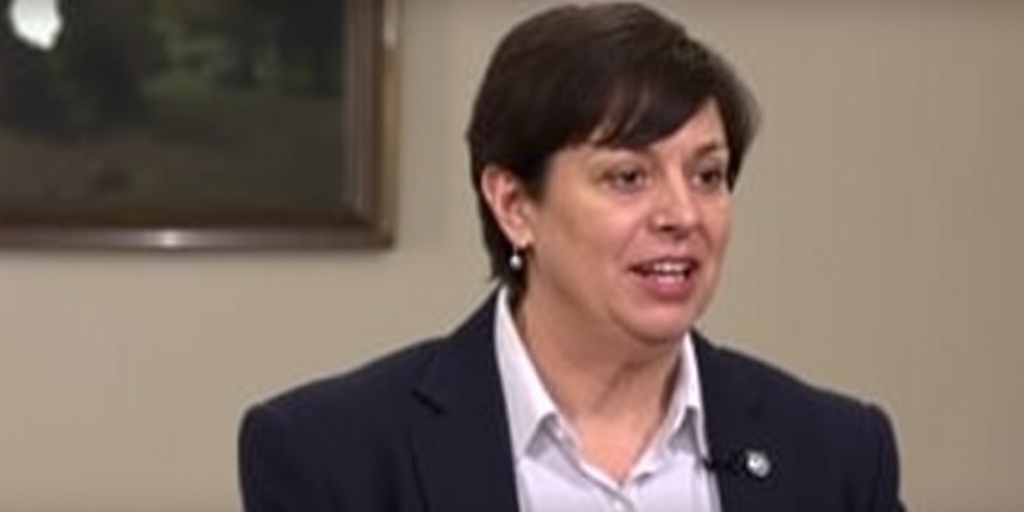
Governor Gretchen Whitmer Emphasizes Bipartisanship While Warning Against Tariffs Targeting Canada
On Wednesday, Governor Gretchen Whitmer of Michigan conveyed a compelling message at the Detroit Auto Show, highlighting the intricate relationship between Michigan and Canada while issuing a nuanced warning against President-elect Donald J. Trump’s potential tariff impositions on Canadian imports. In her address, she expressed her willingness to collaborate with the incoming administration but underscored her strong opposition to punitive tariffs, which she argued could have detrimental effects on both economies.
Whitmer’s remarks came at a convention center situated just across the Detroit River from Windsor, Ontario, a region characterized by deep cultural and industrial ties. She articulated concerns regarding Trump’s threats to impose tariffs as a means of addressing issues related to migration and fentanyl trafficking. “Using tariffs as punishment would risk damaging supply chains, slowing production lines, and cutting jobs on both sides of the border,” she cautioned, framing the discussion within the context of national security and economic integrity.
While Whitmer refrained from directly naming Trump, her comments were clearly directed at the incoming president, who has previously indicated that he might resort to tariffs to compel Canada to take action on various issues. This has sparked discussions among Canadian officials about possible retaliation, including proposals to disrupt electricity supplies to the U.S. from Ontario. Whitmer emphasized that while tariffs can be valuable tools, they should not be considered universal solutions—especially when it comes to relations with key trading partners.
“I am not opposed to tariffs outright, but we cannot treat them like a one-size-fits-all solution,” she stated. “We certainly shouldn’t use them to punish our closest trading partners.” She highlighted the interconnected nature of the auto industry, noting that components often cross the U.S.-Canada border multiple times during the production process. Imposing tariffs at each juncture would inevitably lead to increased costs for consumers, impacting everything from purchasing a new vehicle to servicing existing ones.
In addressing the challenges facing the auto industry, which constitutes a significant portion of Michigan’s workforce and economic output, Whitmer called for a balanced approach. The industry, she pointed out, accounts for approximately 20% of the state’s workforce and generates an estimated $304 billion annually, according to figures from the Detroit Regional Chamber.
“Supporting existing businesses while attracting new ones is vital for our economic growth,” she emphasized, urging both parties to work collaboratively instead of yielding to the extremes within their respective factions. Whitmer pointed out that bipartisan cooperation is more crucial now than ever, especially in light of recent shifts in the Michigan political landscape, including the Democrats losing control of the Michigan House of Representatives.
She acknowledged the dual support from voters for both herself and Trump, stating that Michiganders expect their leaders to find common ground. “I don’t want to pretend we’re always going to agree, but I will always seek collaboration first,” Whitmer remarked, indicating her intent to engage constructively with the Trump administration moving forward.
Despite previous conflicts with Trump, she expressed her desire to deepen her connection with him, suggesting that mutual respect and collaboration could lead to better outcomes for Michigan. “President Trump cares about Michigan, he spent a lot of time here, and Michigan helped elect him to the White House,” she noted, reiterating her commitment to focusing on strategic economic discussions rather than divisive rhetoric.
Additionally, Whitmer touched upon another pivotal issue—Michigan’s transition to electric vehicles. Striking a careful balance, she assured her audience, “We don’t care what you drive; we just care that it’s made right here in Michigan, by Michigan workers.” This statement resonated with the audience and reflected her broad vision for an inclusive and robust automotive sector in the state.
In summary, Whitmer’s address was a clear indication of her strategic approach as she steps into this new chapter of her governorship. By blending optimism for bipartisan cooperation with caution regarding tariffs, she is positioning herself as a pragmatic leader dedicated to protecting Michigan’s economic interests while fostering constructive dialogue with the federal government. As the political landscape continues to evolve, Whitmer’s emphasis on collaboration might prove to be a crucial element in navigating the challenges that lie ahead.
Stay Informed With the Latest & Most Important News
Previous Post
Next Post
-
 01New technology breakthrough has everyone talking right now
01New technology breakthrough has everyone talking right now -
 02Unbelievable life hack everyone needs to try today
02Unbelievable life hack everyone needs to try today -
 03Fascinating discovery found buried deep beneath the ocean
03Fascinating discovery found buried deep beneath the ocean -
 04Man invents genius device that solves everyday problems
04Man invents genius device that solves everyday problems -
 05Shocking discovery that changes what we know forever
05Shocking discovery that changes what we know forever -
 06Internet goes wild over celebrity’s unexpected fashion choice
06Internet goes wild over celebrity’s unexpected fashion choice -
 07Rare animal sighting stuns scientists and wildlife lovers
07Rare animal sighting stuns scientists and wildlife lovers













